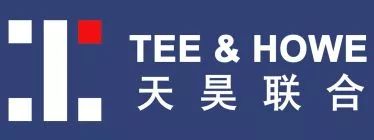- within Intellectual Property topic(s)
- in United States
- within Technology topic(s)
- with Senior Company Executives, HR and Inhouse Counsel
With the information fromChenghua LuoofAmgen, which is highly appreciated, I write to report on the first drug patent term extension (DPTE) granted in China. Please correct me if anyone is aware of another DPTE granted in China earlier.
The drug at issue is spesolimab, branded Spevigo IV fromBoehringer Ingelheim(BI), which is a humanized IgG1 monoclonal antibody treating Generalized Pustular Psoriasis (GPP, a nasty and potentially life-threatening disease characterized by widespread, sterile, pus-filled blisters) by blocking the activation of the interleukin-36 receptor. Information on this DPTE (see attached) is as below:
- The China National Medical Products Administration (NMPA) granted the drug marketing approval (DMA) to Spevigo IV on 13 December 2022 as a class 1 innovative drug.
- According to BI's own registration at the CN drug patent linkage platform, the corresponding patents covering Spevigo IV is CN107007833B ('833, CN201610916419.0), which was granted on 11 December 2020 with a filing date of 14 November 2012, with two other Chinese patents (which will be detailed below).
- The DPTE granted by the CNIPA on 20 June 2025 is directed to '833 with the following details:
- The DPTE is limited specifically to claims 1, 3, 11, and 20 of '833, which are Swiss-type claims seeming reciting the antibodies in Spevigo IV with specific combinations of the amino acid sequences of the light and heavy chain variable regions. The term of the other claims in '833 will not be extended by this DPTE.
- The DPTE granted is 1490 days (4 years and 29 days). That is, while the original full-term expiry was 14 November 2032, the now extended full-term expiry is 13 December 2036. Although the maximum DPTE that could be granted is 5 years, since for '833 that would be 14 November 2037, which will exceed the 14-years limitation (the total effective patent term after the innovative drug has obtained marketing approval in China is not more than 14 years), the maximum extended term for '833 could only be 13 December 2036.
- BI has to pay RMB32,000 (about USD450) by 14 November 2032, before the original full-term expiry, to enjoy the DPTE.
Additional points to note:
- In addition to '833, BI also listed other two CN patents CN104080808B ('808, 201280054425.X) and CN112812183B ('183, 202011390234.3), for which '808 is the parent being the CN national phase entry of PCT/US2021/064933, and '833 and '183 are the two divisionals from '808, and therefore '808, '833 and '183 all share the same filing date, priorities, and full-term expiry before DPTE.
- Although '833 was granted before the current Chinese Patent Law with DPTE came in force on 1 June 2021, the DMA of Spevigo IV was granted thereafter, and therefore '833 could enjoy DPTE, but not patent term adjustment (PTA). It is the grant date of the DMA that matters in determining whether DPTE is to be granted.
- The DPTE of '833 could only be granted in June 2025 after the Implementation Regulations of the Chinese Patent Law, and the Chinese Patent Examination Guidelines came into force in January 2024.
- Before this, it was unclear what is the definition of innovative drug in China, which is one of the requirements to enjoy DPTE in China. From this case, it appears that this definition is not the narrower definition, i.e. the innovative drug is first sold in China. Instead, it appears that the definition of innovative drug is that the application of drug marketing approval was filed in China before the first drug marketing approval is granted in anywhere of the world, notwithstanding that the DMAs of Spevigo IV elsewhere were all granted earlier than that in China (US 1 September 2022; Europe 9 December 2022; Japan 16 November 2022), and naturally the DMA application in China must be filed before 2022. This is good news to innovative drug developers, as if the definition of innovative drug was "first sold in China", then most if not all new drugs would not be able to enjoy DPTE in China, including the current Spevigo IV.
- Another good news to innovative drug developers is that this case confirms that biologics can also enjoy DPTE in China, in addition to chemical small molecules.
- '808 is directed to the antibody claims corresponding to the Swiss-type claims in '833 (which are considered as purely method of manufacturing claims in China), and therefore could be used instead of '833 to obtain DPTE based on Spevigo IV. As only one patent could enjoy DPTE for Spevigo IV in China, and once the DPTE is granted the same patent cannot be used to obtain DPTE for another drug (I call this"one drug, one patent; one patent, one drug"policy), although product claims in '808 should be preferred over method of manufacturing claims in '833 at least for the ease of proving infringement (although in this case there may be not much difference), BI may intentionally chose '833 to obtain DPTE for Spevigo IV due to the reason below.
- BI has another drug Spevigo SC with DMA granted by the NMPA on 5 March 2024. BI also listed '833, '808, and '183 for this Spevigo SC. There were news saying that this Spevigo SC was granted as improved new drugs in class 2.2 (cannot be class 2.1, as this class is directed to small molecule drugs with esters or salts of known active ingredients), i.e. biologics with new indications. According toGemini Google(I am confident that Gemini is not giving me hallucination for this......), the indication of Spevigo SC is the prevention of recurrent GPP flares, while the indication for Spevigo IV is for treating GPP flares as they occur. Therefore, as '833 has already been used for Spevigo IV, '808 could now be used for Spevigo SC to enjoy the maximum 5 years of DPTE (i.e. with the term extended to 14 November 2037, less than 14 years from the DMA grant date of 5 March 2024 of Spevigo SC).
- On the other hand, '183 covers a different combination of the amino acid sequences of the light and heavy chain variable regions from those in '833 and '808, which may not be used in the actual products Spevigo SC and Spevigo IV. Further, the diseases recited in the Swiss-type claims of '183 does not have the prevention aspect of the indication of Spevigo SC. Because of these, I am doubtful whether '183 could be used to obtain DPTE for Spevigo SC.
- If BI is successful in getting DPTE for '808 based on Spevigo SC, the other good news to innovative drug developers is that slight difference in the indication (Spevigo IV treats GPP flares; Spevigo SC prevents recurrent GPP flares) could result in additional chance of obtaining DPTE in China.
- However, to obtain additional DPTE, due to the"one drug, one patent; one patent, one drug"policy, it is preferred, if not vital, to file and obtain grant of divisionals, as illustrated in this case. Otherwise, BI would have no patents to obtain DPTE for the later approved Spevigo SC.
- To maximize the chance to file divisionals voluntarily in China, it is essential to keep the parent pending as long as possible, which could be achieved by filing a request to delay examination for 3 years in China, as explained in my session "Double Trouble! An International Perspective on Divisional Practice and Double Patenting" at this yearIntellectual Property Owners Association (IPO)Annual Meeting in San Diego (now you have good reasons to go to an IPO live event).
As always, any thoughts and comments are welcome. In particular, I will be grateful for confirmation from BI fellows on the following (to the degree that is allowable to share, of course):
- Whether the indication of Spevigo IV is treating GPP flares as they occur, while that for Spevigo SC is the prevention of recurrent GPP flares in China.
- Whether Spevigo IV is a class 1 drug (innovative drug), and Spevigo SC is a class 2.2 drug (known biologics with new indications), as the NMPA's records do not show these.
- Whether '183 could be used to obtain DPTE for Spevigo SC.
- Whether DPTE has been granted to '808 for Spevigo SC, and if so, for how long.
The content of this article is intended to provide a general guide to the subject matter. Specialist advice should be sought about your specific circumstances.


